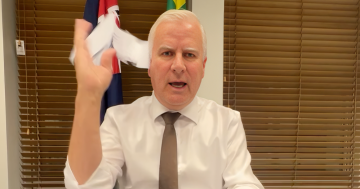 More than half of Scottish Public Servants say they have no intention of adopting the practice of using pronouns in their email signatures.
More than half of Scottish Public Servants say they have no intention of adopting the practice of using pronouns in their email signatures.
The rejection comes in an internal survey ahead of a new Public Service ‘pronoun pledge initiative’, which aims to “promote diversity and encourage inclusivity within the Scottish Government”.
The initiative seeks to raise awareness of “gender identities and pronoun use across the organisation to create and foster an open culture that is supportive of the LGBTI+ Community”.
In the intranet poll workers were asked: “Do you include your personal pronouns in your email signature?”
A total of 3,278 people across the Government and its partner Agencies responded, with 17 per cent ticking the box that said ‘yes’; 25 per cent choosing ‘no, but they might in future’; and the remaining 58 per cent selecting ‘no and they probably wouldn’t’.
Organisers of the initiative said they hoped they would be able to persuade more Public Servants to adopt the practice over the next few months.
As part of the initiative, Public Servants were asked to “be more self-aware and mindful of gender assumptions they might make” and encouraged to “include personal pronouns in introductions and email signatures to normalise their inclusion”.
A second poll is due to be conducted in September to see if there is any change in the numbers.
However, internal correspondence, released under Freedom of Information legislation, showed that Government staff working on the first poll were concerned about opposition to the proposal, and removed a comment option to “minimise any negative responses”.
The Scottish Government’s staff LGBTI+ network also expressed concern about the survey, saying it worried the survey “could raise transphobic comments/pushback that will harm trans staff”.
The use of pronouns (she/her, he/him, they/them) in email signatures is becoming increasingly common.
The lesbian, gay, bisexual and transgender rights charity, Stonewall said it “helps people respectfully refer to one another” and “helps staff avoid mistakes, like miss-gendering someone which can be especially hurtful for trans people, but also embarrassing for non-trans people”.
Edinburgh, 18 July 2021











